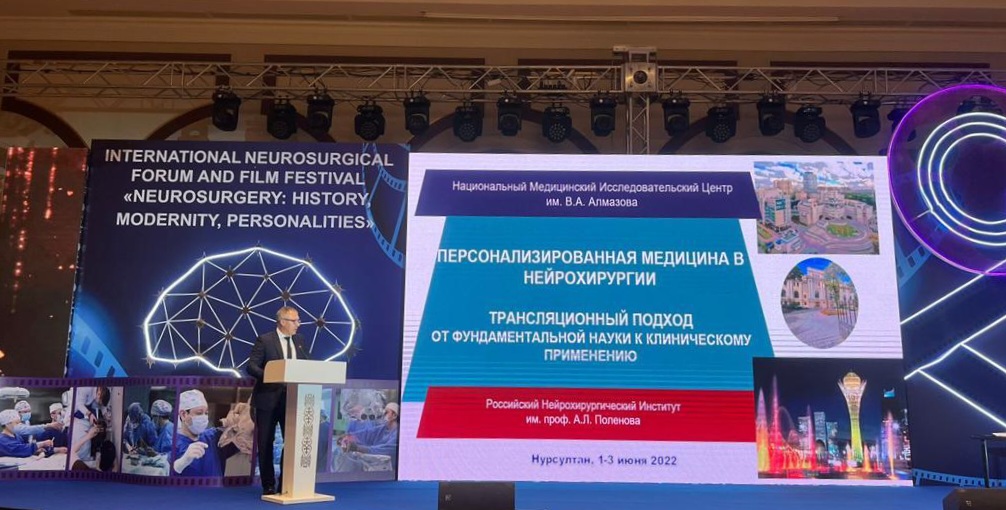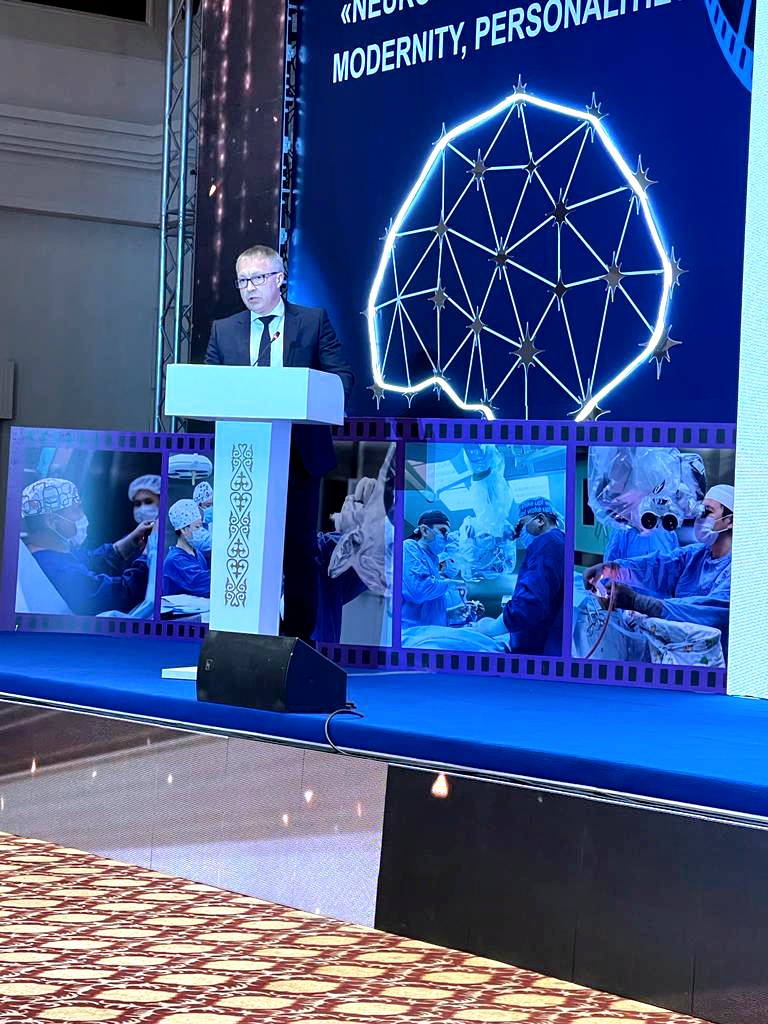
From July 1 to July 3, Nur-Sultan, Kazakhstan hosted the International Neurosurgical Forum and Film Festival – Neurosurgery: History, Modernity, Personalities.
Director of Polenov Neurosurgical Institute (branch of Almazov Centre), Professor Konstantin Samochernykh took part in the event with a presentation entitled “Personalized medicine in neurosurgery. Translational approach from basic science to clinical applications.”
“Thanks to the advent of translational medicine, the gap between scientific inventions and everyday clinical practice is narrowing, and the latest and most effective treatments and diagnostic methods are being mastered. Modern neurosurgery at Almazov Centre is testimony to this fact,” stated Prof. Samochernykh.
Participants of the Forum learned about the successful use at Almazov Centre of translational approach for personalized treatment of various conditions. The discoveries and inventions of the Centre’s specialists were demonstrated, which proved to be safe and effective in clinical practice. Personalized treatment approach based on the molecular and genetic profile of a tumor, CAR-T and NK cell therapy, the latest intraoperative diagnostic methods, including those based on the biology of neoplasms, immunotherapy for malignant gliomas, introduction of a neural network algorithm, development of new radiopharmaceuticals for theranostics in world practice — all this will soon take its place in clinical neurooncology.
The presentation also highlighted the progress in personalized treatment of patients with vascular neurosurgical conditions and shared insights about the active study of the molecular features of aneurysms, the discovery of new genetic markers for the risk of AVM progression and rupture, the development of a screening test for them, as well as the creation of a new neurodiagnostic software. Particular focus was given to functional neurosurgery and the implementation of the results obtained in clinical practice.
An application for pain syndrome assessment, the use of ontogenetics in treatment, new approaches to neurophysiological research are just a small list of projects currently undertaken by the scientists of the World-Class Research Centre for Personalized Medicine. The presentation by Konstantin Samochernykh demonstrated the possibilities that emerged after the development of translational medicine and are already being actively used as part of ongoing research at the WCRC to increase the effectiveness of various treatments.

